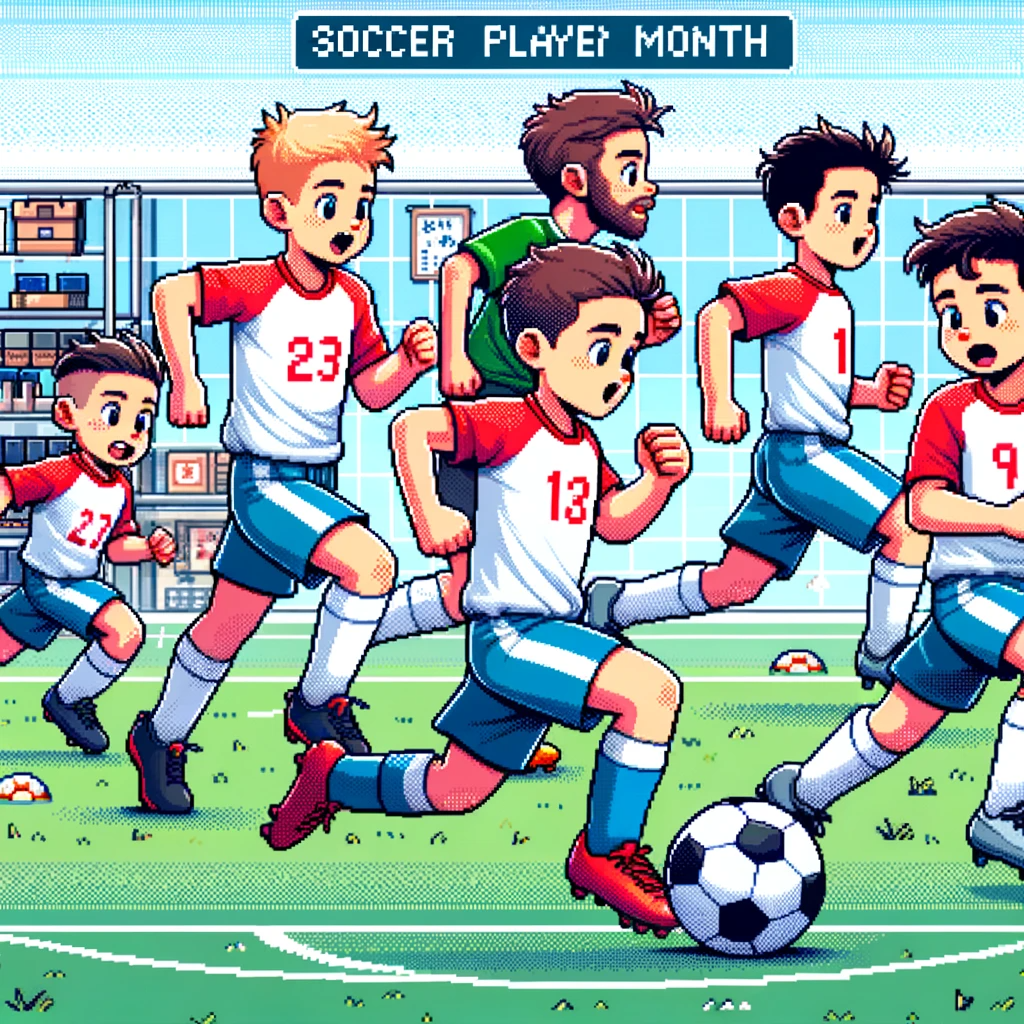
The Impact of Birth Month on Soccer Player Development: A Closer Look at Technical Skills
In that Malcolm Gladwell book with the 10,000 hours, he also talked about the impact of birth month on hockey player development. Basically, because players are (generally) sorted according to their birth year, players born in January and February have more time to grow and develop than players born in November or December. If we’re selecting on merit, we’re more likely to have lots of early birthdays on a youth team.
The study Are soccer players born later in the year more technically skilled than those born earlier in the year? unveils intriguing insights about how the month of birth can influence a player’s technical skills in soccer. This blog focuses on the implications for soccer coaching and player development.
Key Findings: It’s More Than Just Physical Development
The study, conducted with 150 youth players from an elite Brazilian soccer academy, explored whether those born later in the year exhibit different skills than their early-born counterparts. Here’s what it found:
- Physical Attributes and Birth Month: Players born earlier in the year tend to be taller and heavier, giving them a physical edge.
- Sprinting and Dribbling: Early-born players outperformed in sprinting and dribbling tasks, especially straight-line movements.
- Technical Skills and the Underdog Advantage: Interestingly, players born later in the year showed greater accuracy in passing with their nondominant foot, indicating a potential edge in technical skills.
Implications for Soccer Coaching and Player Development
1. Rethinking Talent Identification
- Recognize the Underdog: Coaches should be aware that late-born players, often overlooked due to their size, might possess superior technical skills.
- Holistic Assessment: It’s crucial to evaluate players on various skills, not just physical attributes, to avoid missing out on technically gifted players.
2. Training Focus
- Balanced Skill Development: Encourage players to develop physical and technical skills, regardless of their birth month.
- Targeted Training for Late-Born Players: Specialized training modules can be designed to leverage the technical strengths of late-born players.
3. Policy Revisions
- Revise Selection Criteria: Soccer academies should consider adjusting their selection processes to account for the relative age effect.
- Fair Play Opportunities: Creating equitable opportunities for all players, irrespective of when they are born in the year, can enhance the talent pool.
Blog Summary
This study sheds light on the birth month’s subtle but significant impact on soccer player development. It calls for a more nuanced approach to talent identification and development, highlighting the need for soccer academies and coaches to adapt their methods to foster diverse skills and talents.
For Coaches and Development Programs
Embrace these findings to refine your coaching and talent identification strategies. Doing so can contribute to a more inclusive and effective approach to nurturing soccer talent.


